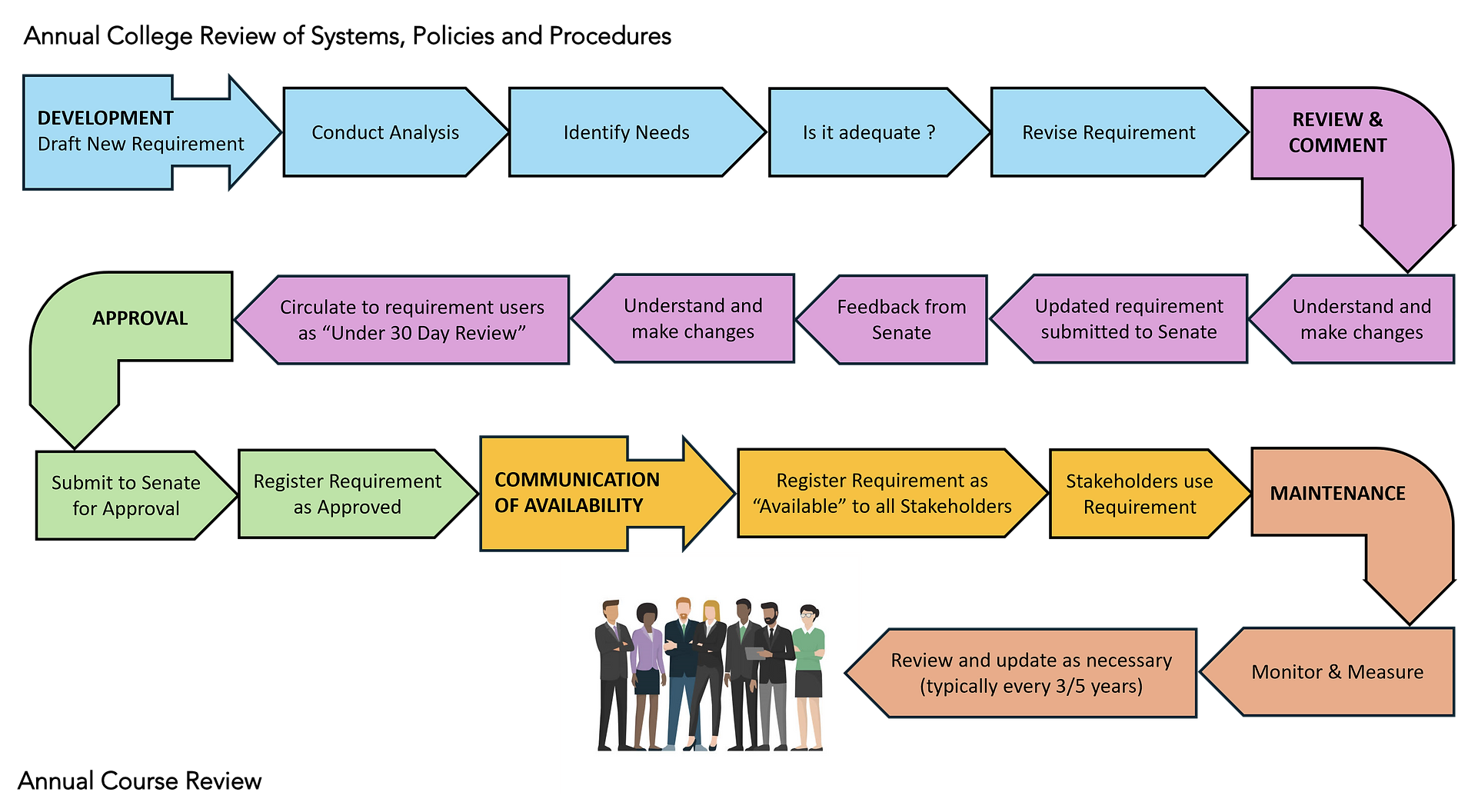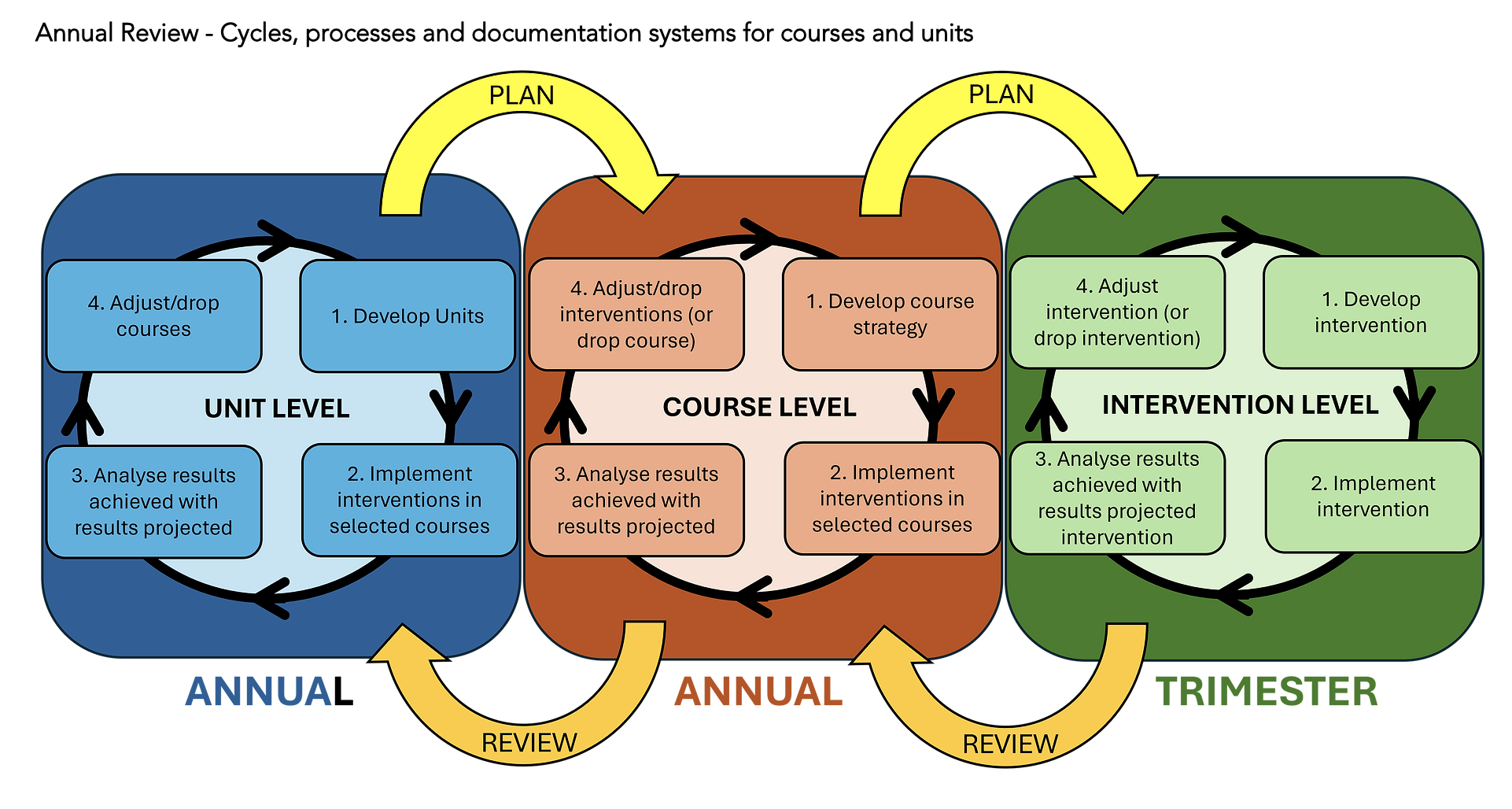Annual College Review
Thomson Reuters Regulatory Intelligence (2024) advocates that “No matter what the policies are, and no matter who in your organisation writes them, they have to get approved. That approval process is vital to their validity and enforcement. Without a strong approval process, your policies are open to challenge.”
SQA (2024), state that “Once you are an approved centre, you must demonstrate that your centre continues to meet. SQA’s quality assurance criteria.”
While approval processes can differ in different situations, Doctoral College have a few principles that adhere, regardless of the specifics.
1) The approval process must be authorised at the highest levels of Doctoral College, and that authorisation must be documented.
2) Approvals should take place at the level at which the requirement/policy is written.
3) The right input prior to and during the approval process is critical, not only to the approval process itself, but also to implementation.
4) All approvals must be documented.
5) Requirement/policy approval must be a process, not an impediment.
6) An alternative or exception process must be available.

Student Progress Meeting Records
- As required by the Code of Practice, Doctoral College must maintain records of all structured interactions as evidence of engagement with students studies. This activity requires the involvement of students and tutors.
- Recording meetings is compulsory as the meetings are important as they provide an opportunity for the student to obtain feedback from tutors on the direction of progression and also on any written work produced. They allow problems to be identified at an early stage so that they can be rectified in a timely manner.
- Maintaining records of these meetings helps foster good professional practice and ensures that notes and documents are easily accessible and provide a useful record of progress and agreed actions for both students and tutors.
Recording Meetings or ‘Formal Interactions’
- The Code of Practice requires all meetings or ‘formal interactions’ (formal interactions are described as a structured meeting). Meetings can take place in person, or at a distance (for example via Skype, if a student representative or tutors are off campus).
- All formal interactions will initiate recording (taking notes) of the outcomes and action points.
Frequency of Meetings
The Code of Practice sets out the minimum requirements of annual meetings.





